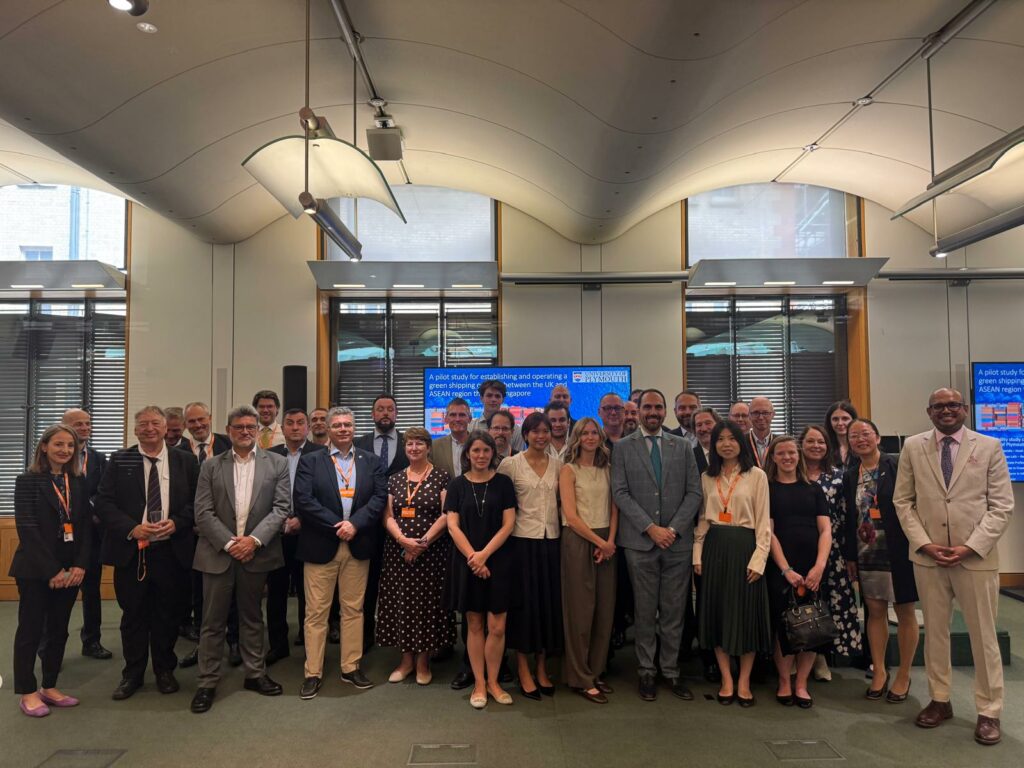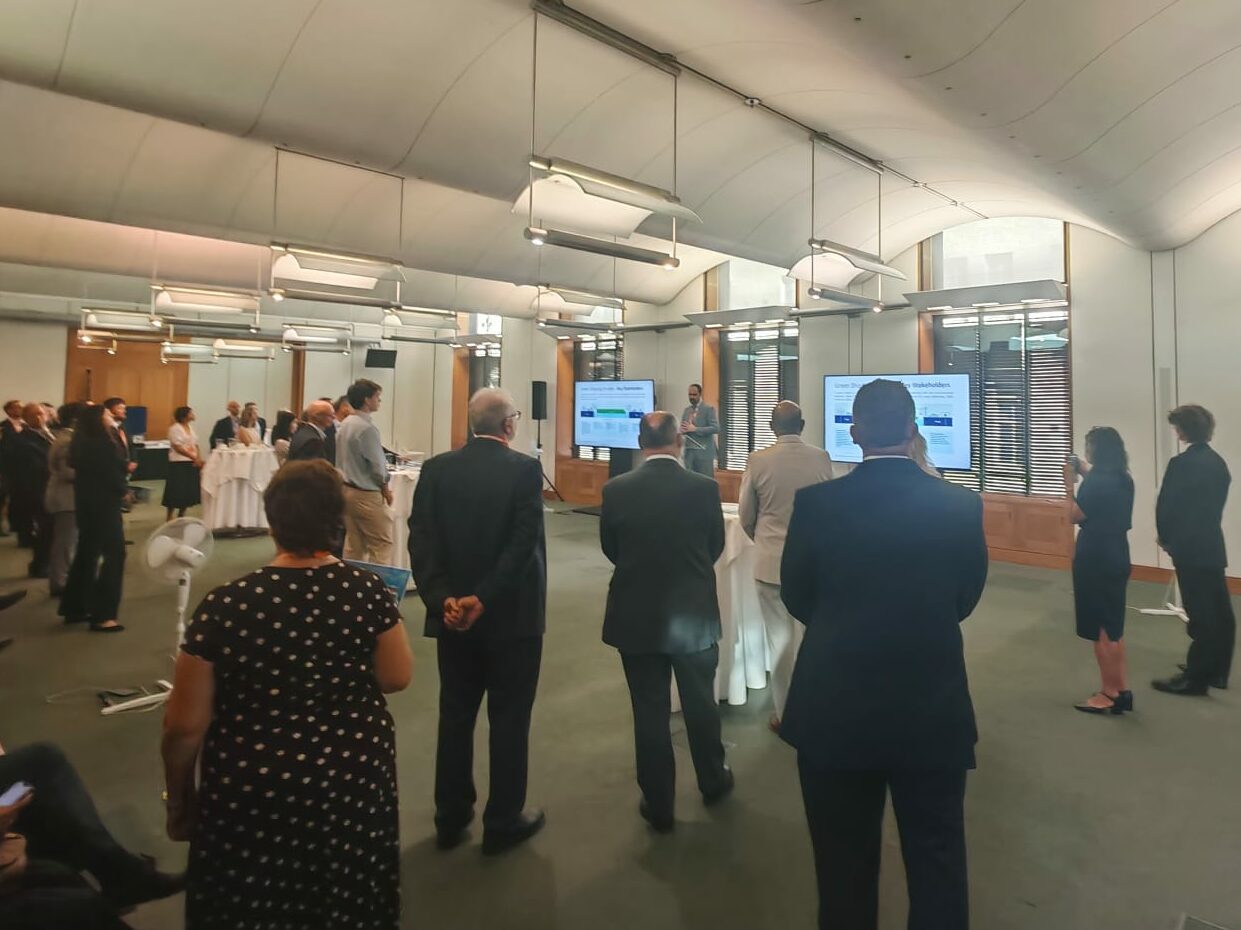Charting a Course for Green Shipping: Reflections from Westminster

Earlier this month, ABL’s Director for Maritime Decarbonisation, Stefano Scarpa, took part in a Westminster event hosted by the University of Plymouth, where the university unveiled its flagship study on the development of a UK–Singapore Green Shipping Corridor (UKSGSC).
The event, held at Portcullis House and sponsored by Anna Gelderd MP, brought together policymakers, industry leaders, and academics for a lively and timely discussion on the university’s pioneering research.

UK – ASEAN Green Shipping Corridor: Smooth sailing or choppy waves?
Led by Dr Stavros Karamperidis and supported by the UK Government, the study outlines a compelling vision: a trade- and investment-linked corridor that leverages Singapore’s emerging status as a multi-fuel bunkering hub and the UK’s robust maritime finance and legal ecosystem. The corridor promises to accelerate decarbonisation, enhance sustainable trade, and position the UK as a first mover in green maritime innovation.
As energy and marine consultants at ABL, we were proud to contribute to the dialogue and share our perspective on the practical challenges and opportunities ahead.
While the momentum is clear, several critical issues emerged from the discussions:
- Fuel Uncertainty and Bankability: Despite some visible progress in alternative fuel adoption, energy efficiency technologies and practices, the lack of consensus on a dominant fuel type continues to hinder investment. This uncertainty is one of the factors that affects the bankability of projects and technologies, creating hesitation among financiers and operators alike.
- Financing the Transition: A recurring question throughout the event was stark yet unresolved: who will finance this transition? While goodwill and ambition are abundant, the absence of clear funding pathways remains a major barrier. The industry cannot afford to wait for the IMO to lead – national governments and private capital must step up and play their part.
- Policy and Regulatory Gaps: The success of green corridors hinges on coordinated stakeholder buy-in, underpinned by robust regulation, policy consistency and global government backing. Yet, as highlighted in the study, the UK still lacks the policy infrastructure to support alternative fuel bunkering and shore power at key ports.
- Insurance and Risk: The absence of insurance products tailored to alternative-fuelled vessels and energy efficiency technologies presents a significant risk gap. Without these instruments, the industry’s ability to scale innovation and attract investment will be severely constrained.
- Bunkering Bottlenecks: Infrastructure remains a bottleneck. Ports in the UK must overcome challenges around fuel storage, electrification, grid capacity, the generation of electrical energy via renewables, and procedural clarity to match Singapore’s pace and ambition.

At ABL, we remain committed to supporting, de-risking, and accelerating maritime decarbonisation. The UK–Singapore Green Shipping Corridor represents a bold and necessary step forward, but realising its potential will require collective resolve, cross-sector collaboration, and decisive policy action.
Contact Stefano and the team at ABL to discuss marine and engineering advisory, consultancy and technical due diligence services, to help unlock green financing.
